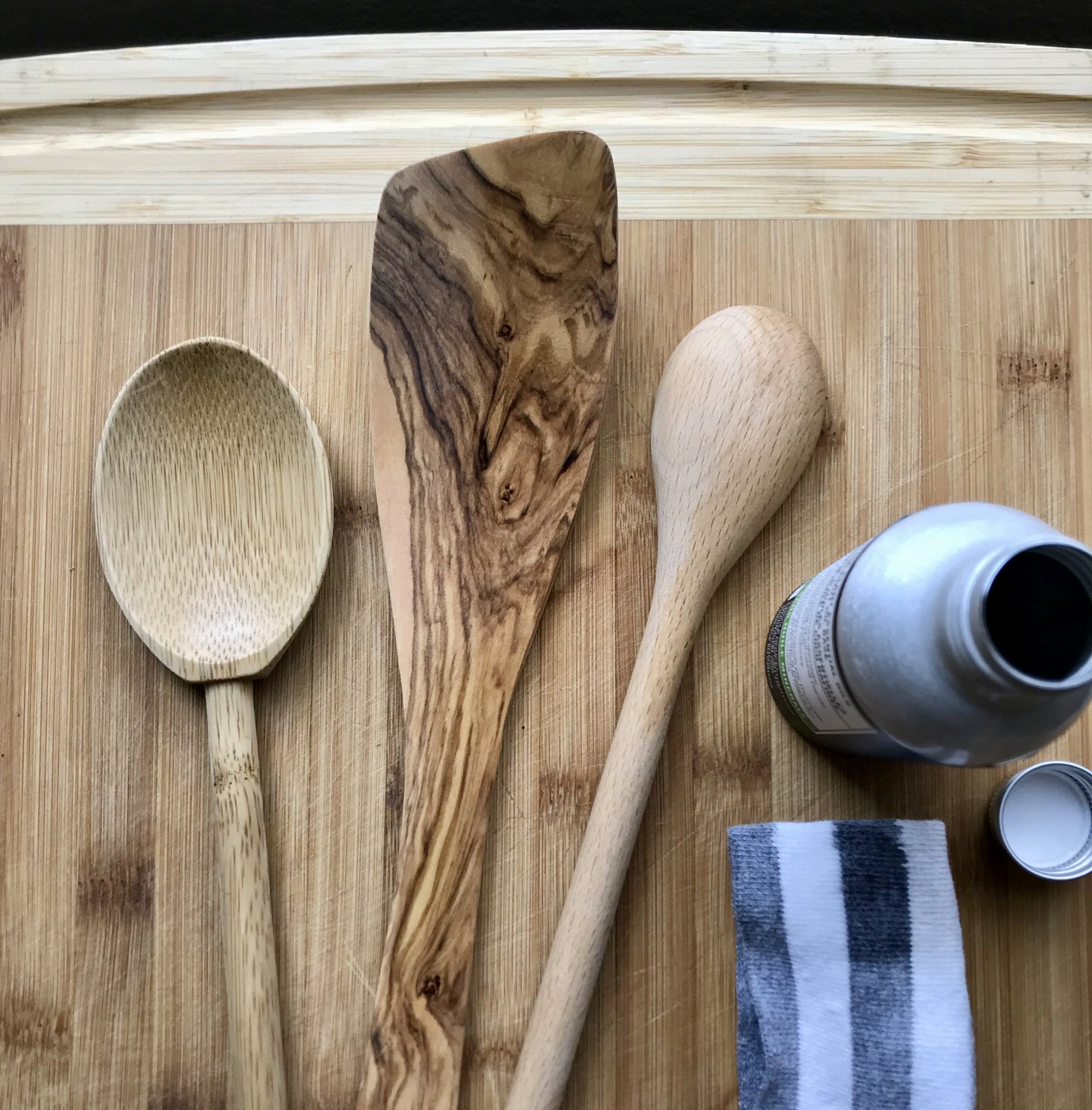Your Cart is Empty
FREE SHIPPING OVER $59 IN U.S.A. + FREE RETURNS

So are you? I'm ashamed to admit that I have been guilty of this for years and I had no idea. As many home cooks, for a long time I did not know how to properly care for my wooden kitchen utensils to keep them looking good while also sanitary.
I love using wooden spoons, cutting boards, and other kitchen tools and truly believe that they are the workhorses of the kitchen. They can be used for all types of cooking. What I didn't know was that if well cared for, wooden utensils can last for years.
After throwing away a number of cracked wooden spatulas and a stack of warped cutting boards I set out to find out what I was doing wrong and how I could avoid making same mistakes in the future.
Here's my collection of most favorite wooden pieces. As you can see, some of them really need care.

How to care for my wooden kitchen tools was one of the things I set out to investigate. The other one was which products to use for cleaning and maintenance.
When they're made, most wooden spoons, utensils and cutting boards are treated with food grade mineral oil, which creates a neutral surface that does not allow bacteria to reside. With time and use this layer of protection wears off and needs to be restored.
Rub with mineral oil or board wax when your wooden spoons or cutting boards start to look dry or feel a bit rough. Don't use olive or vegetable oils for this, since these oils go rancid over time.
Hand-wash wooden utensils with hot water and mild dish soap. Although wooden utensils and cutting boards could technically be cleaned in the dishwasher, it's not a good idea. The hot water and harsh detergent will lead to their demise fairly quickly.
Dry wooden utensils with a dishtowel, then allow to air-dry completely before putting them away. This way you can avoid the nasty black mold spots which develop if wooden utensils are stored with any residual moisture. Same goes for cutting boards that are stored vertically on the counter.
Stains are not a deal breaker. Highly pigmented foods, such as tomatoes, herbs or berries, will stain wooden utensils and cutting boards. They're still safe to use. The stains will eventually fade or can be removed with the help of a lemon and some salt or baking soda. Any spotted stains or roughness can be rubbed away with a piece of fine grit sandpaper. If you choose to do this, however, make sure to season the raw surface afterward with board oil or wax.
Pick your odor management strategy. Wooden items tend to absorb odors from strong flavors like garlic, onions or certain herbs which could get transferred to other foods. To reduce the smell, rub the wooden surface with the cut side of a halved lemon or with a paste made of baking soda and water. This will help neutralize the odor. For me this is not enough and I simply keep a separate cutting board and/or utensil for foods with more intense flavors.
Not all common household cleaning products are good for your wooden utensils. Some may be too harsh and will dehydrate the wood too much causing your favorite utensils or boards to crack or warp. I've put together a short guide to remind you which products are helpful when it comes to wood care.

Even though wooden kitchen tools seem a little fussy and require more care they are most definitely worth the extra effort. With proper care your wooden kitchen utensils should last a long, long time.
Comments will be approved before showing up.


